简体中文
繁體中文
English
Pусский
日本語
ภาษาไทย
Tiếng Việt
Bahasa Indonesia
Español
हिन्दी
Filippiiniläinen
Français
Deutsch
Português
Türkçe
한국어
العربية
Why are more Nigerians Turning to Crypto trading?
Abstract:The rising interest in crypto trading among Nigerians is a multifaceted phenomenon driven by economic factors, accessibility, international transactions, financial sovereignty, education, and regulatory advancements.
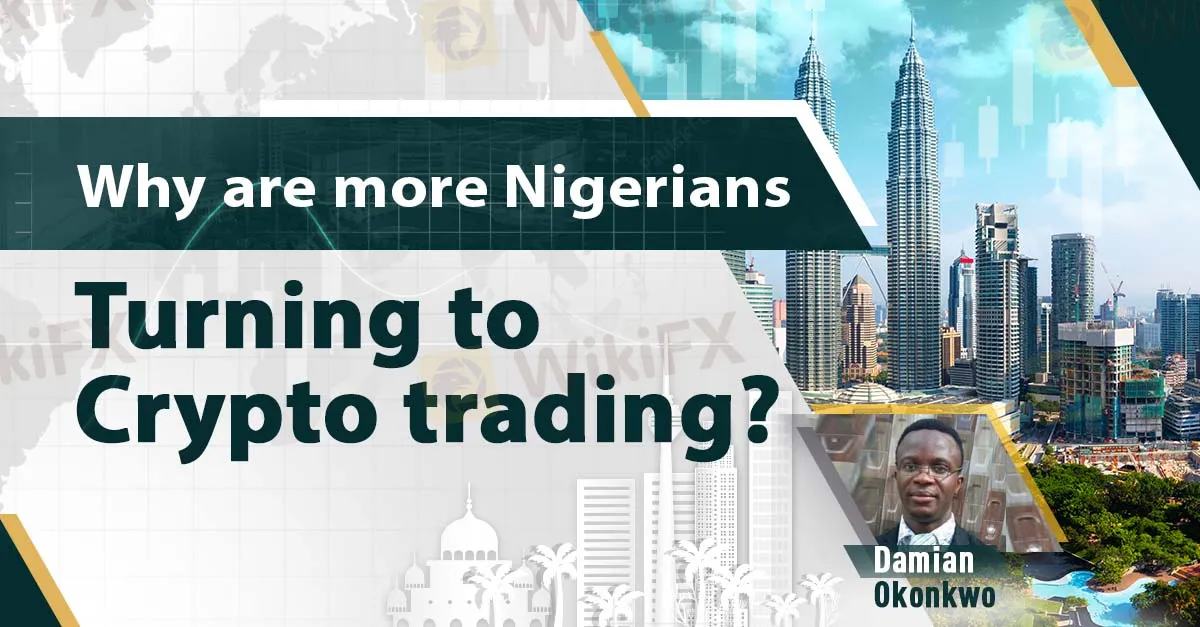
By: Damian Okonkwo

In recent years, Nigeria has witnessed a significant surge in interest in cryptocurrency trading as more individuals are exploring digital assets for savings and payments. This shift can be attributed to various factors, including economic uncertainties, technological advancements, and the growing awareness of the benefits offered by cryptocurrencies.
Why are more Nigerians turning to Crypto trading?
The rising interest in crypto trading in Nigeria today is driven by several factors, including:
1. Economic Challenges: Nigeria's economy has faced significant headwinds in recent years, with high inflation and devaluation of the Naira eroding purchasing power. Traditional savings options often offer low returns, failing to keep pace with inflation. This has led Nigerians to explore alternative avenues to preserve and potentially grow their wealth.
2. Limited Access to Traditional Finance: A large portion of the Nigerian population remains unbanked or underbanked, lacking access to traditional financial services. Cryptocurrencies offer a more accessible alternative, requiring only a smartphone and internet connection to participate.
3. Potential for High Returns: While inherently volatile, cryptocurrencies offer the potential for high returns, attracting individuals seeking to outpace inflation and potentially achieve financial gains. However, it's crucial to remember that these gains are not guaranteed and come with significant risks.
4. Rise of Crypto Exchanges and Platforms: The emergence of user-friendly crypto exchanges and platforms tailored to the Nigerian market has made it easier for individuals to buy, sell, and trade cryptocurrencies. These platforms often offer localized payment methods and educational resources, further mendorong adoption.
5. Remittances and Cross-Border Transactions: Nigeria, like many other countries, has a significant diaspora contributing to its economy through remittances. Cryptocurrencies offer a faster and more cost-effective solution for cross-border transactions compared to traditional banking systems. This has led to an increasing number of Nigerians using cryptocurrencies to send and receive funds internationally, avoiding high fees and delays associated with traditional remittance channels.
6. Entrepreneurial Opportunities: The crypto boom in Nigeria has not only attracted individual investors but has also spurred entrepreneurial initiatives. Startups and businesses are emerging to cater to the growing demand for cryptocurrency-related services, such as trading platforms, wallet services, and educational resources. This entrepreneurial ecosystem contributes to job creation and economic growth.
7. Technological Advancements: The advancement of technology, particularly the widespread use of smartphones and internet connectivity, has facilitated the adoption of cryptocurrencies. With mobile apps and user-friendly interfaces, individuals can easily engage in crypto trading, making it more accessible to a tech-savvy population.
Challenges and Risks
Despite the growing interest, it's important to acknowledge the challenges and risks associated with cryptocurrency trading in Nigeria:
● Volatility: Cryptocurrencies are inherently volatile, and their value can fluctuate significantly, leading to potential losses.
● Regulation: The regulatory landscape surrounding cryptocurrencies in Nigeria is still evolving, creating uncertainty for investors and businesses.
● Scams and Fraud: The crypto space is susceptible to scams and fraudulent activities. Individuals must be cautious and only use reputable platforms and practices.
● Limited Infrastructure: The infrastructure for widespread adoption of cryptocurrencies for payments in Nigeria is still in its early stages.
Conclusion
The rising interest in crypto trading among Nigerians is a multifaceted phenomenon driven by economic factors, accessibility, international transactions, financial sovereignty, education, and regulatory advancements. As this trend continues, it will be essential for stakeholders, including regulators and market participants, to work collaboratively to ensure a sustainable and secure crypto ecosystem in Nigeria.

Disclaimer:
The views in this article only represent the author's personal views, and do not constitute investment advice on this platform. This platform does not guarantee the accuracy, completeness and timeliness of the information in the article, and will not be liable for any loss caused by the use of or reliance on the information in the article.
Read more
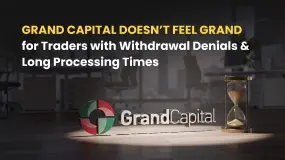
Grand Capital Doesn’t Feel GRAND for Traders with Withdrawal Denials & Long Processing Times
The trading environment does not seem that rosy for traders at Grand Capital, a Seychelles-based forex broker. Traders’ requests for withdrawals are alleged to be in the review process for months, making them frustrated and helpless. Despite meeting the guidelines, traders find it hard to withdraw funds, as suggested by their complaints online. What’s also troubling traders are long processing times concerning Grand Capital withdrawals. In this Grand Capital review segment, we have shared some complaints for you to look at. Read on!
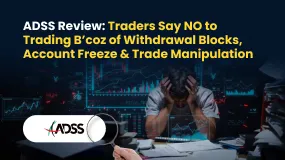
ADSS Review: Traders Say NO to Trading B’coz of Withdrawal Blocks, Account Freeze & Trade Issues
Does ADSS give you plenty of excuses to deny you access to withdrawals? Is your withdrawal request pending for months or years? Do you witness account freezes from the United Arab Emirates-based forex broker? Do you struggle to open and close your forex positions on the ADSS app? Does the customer support service fail to respond to your trading queries? All these issues have become a rage online. In this ADSS Broker review article, we have highlighted actual trader wordings on these issues. Keep reading!
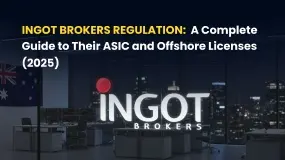
INGOT Brokers Regulation 2025: ASIC vs Offshore License - What Traders Must Know
Explore INGOT Brokers regulation in 2025: Compare their ASIC and Seychelles FSA licenses, understand trader protection levels, and learn about potential risks in this detailed guide.
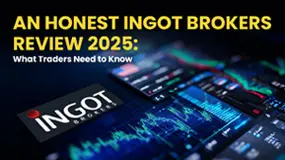
INGOT Brokers Review 2025: High Risk or Hidden Gem? Expert Analysis Reveals All
Comprehensive INGOT Brokers review exploring the broker's mixed reputation in 2025. Discover the truth about regulation, trading options, and user experiences before opening an account.
WikiFX Broker
Latest News
Consob Targets Political Deepfake “Clone Sites” and Unlicensed Platforms in Latest Enforcement Round
WikiEXPO Global Expert Interviews: Gustavo Antonio Montero: ESG in Finance
2 Malaysians Arrested in $1 Million Gold Scam Impersonating Singapore Officials
Is FXPesa Regulated? Real User Reviews & Regulation Check
Fraud Mastermind Zhimin Qian Sentenced to 11 Years for $6.6 Billion Bitcoin Ponzi Scheme
Almahfaza Broker – 2025 Review: Safe or Scam?
Uniglobe Markets Review 2025: A Complete Guide to an Unregulated Broker
INZO Broker No Deposit Bonus: A 2025 Deep Dive into Its Offers and Risks
Exness Broker Expands in South Africa with Cape Town Hub
Global Guide to Finding Forex IBs/Brokers — Share Your Pick and Win Big!
Currency Calculator



